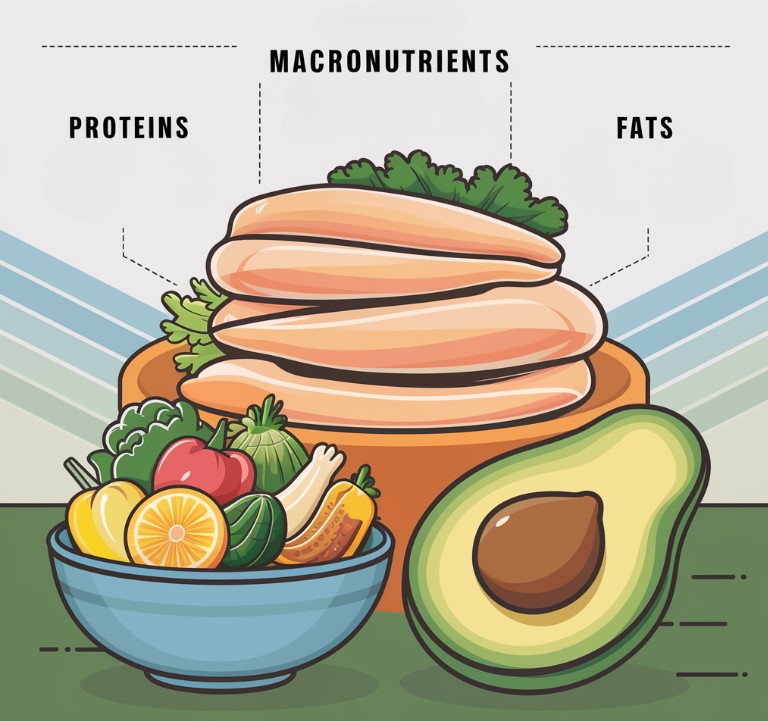Many people today take HCL or hydrochloric acid supplements. Doing so improves digestion and nutrient absorption. HCL is present in the gastric juice our bodies normally produce.
As we age, it’s common to produce less stomach acid. This decline can lead to a condition known as hypochlorhydria, characterized by digestive problems like bloating, heartburn, and nutritional deficiencies. Proponents of HCL supplements, such as those offered through bioptimizers.com, claim restoring stomach acid levels can relieve these issues.
What is Hydrochloric Acid?

The human stomach produces hydrochloric acid. This acid helps people digest their food. It makes up the majority of gastric acid, the mixture of stomach secretions that breaks down food and protects against infection. It helps us digest protein by converting pepsinogen into pepsin. In addition, HCL helps protect us from food poisoning.
Causes of Low Stomach Acid
There are several potential causes for decreased levels of stomach acid production, known as hypochlorhydria. As we age, the ability of the stomach lining’s parietal cells to secrete hydrochloric acid naturally declines over time. By age 60, over 30% of people produce lower levels of stomach acid. Chronic stress can also inhibit the body’s capacity to regulate gastric acid secretion through impacts on digestion-controlling hormones.
H. pylori bacterial infection in the stomach, which affects over half the world’s population, can damage acid-generating cells; autoimmune disorders like pernicious anemia and chronic atrophic gastritis can also destroy the parietal cells that produce HCL. Gastric surgeries that remove parts of the stomach often reduce acid output; these include gastric bypass procedures as well as ulcer or cancer operations. Finally, commonly prescribed medications can directly suppress stomach acid levels. These include antacids, histamine H2 receptor blockers, and proton pump inhibitors. Thus, normal aging, high stress, infection, surgery, and prescription drugs comprise the major causes of declining HCL production and the resulting condition known clinically as hypochlorhydria.
Symptoms of Low Stomach Acid

Signs your HCL production may be decreased include:
- Bloating, belching, burning sensation after meals
- Sense of fullness or food sitting in the stomach undigested
- Nausea, vomiting, diarrhea or constipation
- Heartburn/reflux/GERD
- Multiple food sensitivities
- Frequent intestinal infections or Candida overgrowth
- Chronic fatigue, headaches, mood issues, eczema
- Weak or cracked fingernails
- Difficulty absorbing vitamins and minerals
HCL Supplementation
Supplemental HCL is available over-the-counter in tablet form, usually derived from amino acids or potato/beet sources. Typical dosing ranges from about 300-900 mg per capsule. Potential benefits suggested by advocates include the following.
Improved Protein Digestion

Supplementing with HCL capsules may provide the acidity needed to properly digest protein-rich foods. Once the food exits the stomach and enters the duodenum, sensors detect the increased acidity and consequently trigger pancreas cells to release more alkaline bicarbonate as well as digestive enzymes for the small intestine. This ensures more efficient digestion and absorption of amino acids. With better protein breakdown, people may benefit from improved muscular strength and function, accelerated wound healing, stabilized blood glucose levels, and lower risk of bone loss. If dosed appropriately under supervision, HCL supplementation can counteract low stomach acid to enhance protein utilization in the body.
Increased Nutrient Absorption
Many people produce less HCL as they age, which can impair digestion and nutrient absorption. Supplementing with HCL capsules can help improve the acidic conditions in the stomach to support better digestion. When food enters the stomach, HCL activates pepsin which breaks down protein. It also helps detach vitamin B12 from food so it can bind with intrinsic factors. Furthermore, HCL signals the pancreas to release digestive enzymes into the small intestine. If stomach acid is too low, these digestive enzymes may not get activated appropriately. Low HCL can also increase gastric pH and lead to overgrowth of bacteria that interfere with absorption.
By supplementing with HCL before meals, the stomach is exposed to higher acidity. This better activates pepsin and pancreatic enzymes needed to properly break down nutrients. Improving protein digestion can further facilitate micronutrient absorption.
Relief from Digestive Issues
Supplementing with HCL capsules can provide relief from digestive issues by enhancing digestion. HCL supplements contain betaine HCL which increases the level of acid in the stomach when taken with meals. This additional acid enables more efficient protein breakdown, allows nutrients to be properly absorbed, and signals the lower esophageal sphincter to close to prevent reflux. Taking HCL supplements can help eliminate many digestive problems that arise from hypochlorhydria or low stomach acid. Those suffering from symptoms like gas, belching, and a burning sensation after eating may benefit greatly from HCL supplementation under the guidance of a practitioner.
Immune System Support
Decreased stomach acid production may negatively impact immune health, as many key nutrients required for proper immune function are absorbed in the small intestine with the help of HCL. By improving protein and micronutrient absorption, HCL supplementation can provide immune cells with the fuel they need to function properly and mount effective immune responses. Additionally, adequate HCL keeps foreign microbes from surviving the stomach passage and stops them before they enter the intestines. Through supporting digestion and nutrient status, HCL supplements help shore up the immune system against pathogens.
How To Supplement With HCL

Oral HCL supplements should only be taken before, during, or immediately after meals. The goal is to replicate the body’s natural peak acid secretion that occurs 30-60 minutes after eating. Most protocols suggest starting with one 350-750 mg capsule per large meal, then increasing the dose by an additional pill every three to five days until warmth or burning is felt. This indicates sufficient HCL levels to lower stomach pH. Once the target dose is reached, assessment of symptom improvement determines ongoing dosage. Those with severe acid deficits may require high amounts long-term.
Safety, Side Effects and Contraindications
For most people, properly dosed supplemental HCL is well-tolerated, with few side effects. However, some precautions apply:
- May cause stomach irritation, nausea, or GI discomfort
- Can damage tooth enamel if capsules contact teeth
- Those with gastritis, peptic ulcers, or GERD should use the supplements cautiously
- Not advised for children or pregnant women without medical oversight
- Interacts with certain medications like aspirin/NSAIDs, tetracyclines, bisphosphonates or some antihypertensives
Overall, HCL replacement has the potential to improve digestion, nutrient assimilation, and gut health when stomach acid production is impaired. However, testing under a practitioner’s guidance provides more definitive evidence of low HCL. As with any supplement, benefits and risks should be carefully evaluated on an individual basis.
Related Posts:
- 15 Best Dog Food For Allergies 2024 - Adult, Puppy…
- 8 Digestive-Friendly Foods to Incorporate into Your Diet
- 15 Best Dog Food For Pitbull 2024 - Responsible Pet Care
- 20 Best Gaming Headset Under 50$ 2024 - for PC, PS4,…
- Are Pre Workout Supplements Good For You?
- 15 Best Portable Blender While Traveling 2024 - Top…







